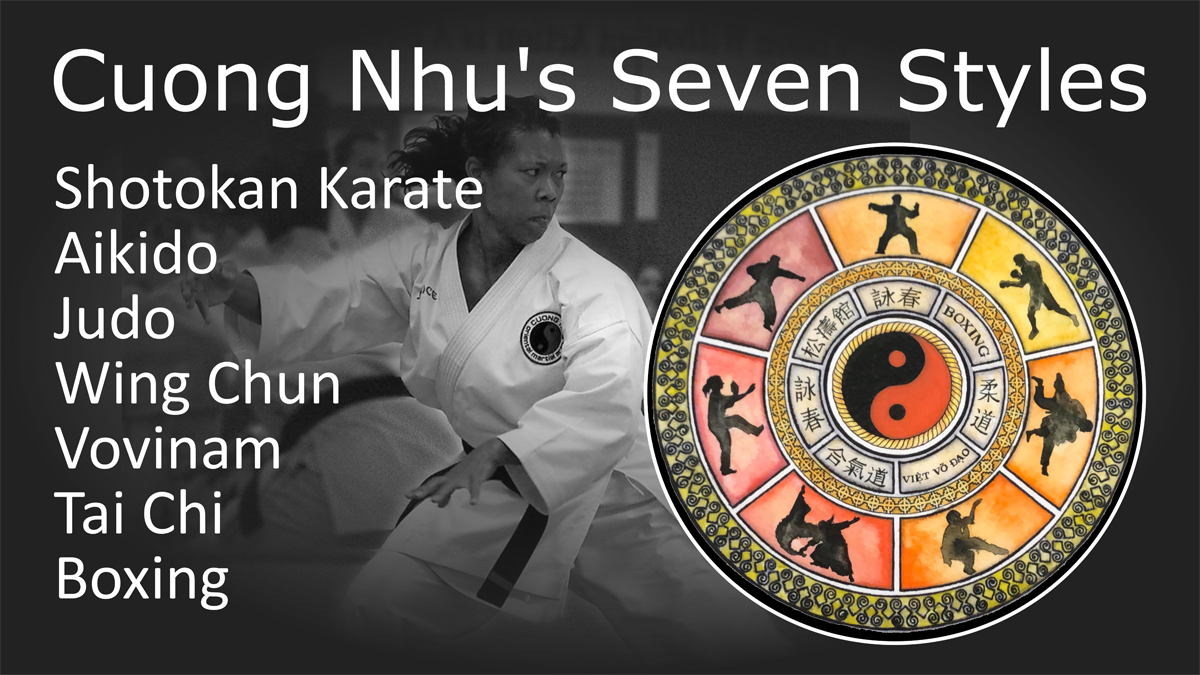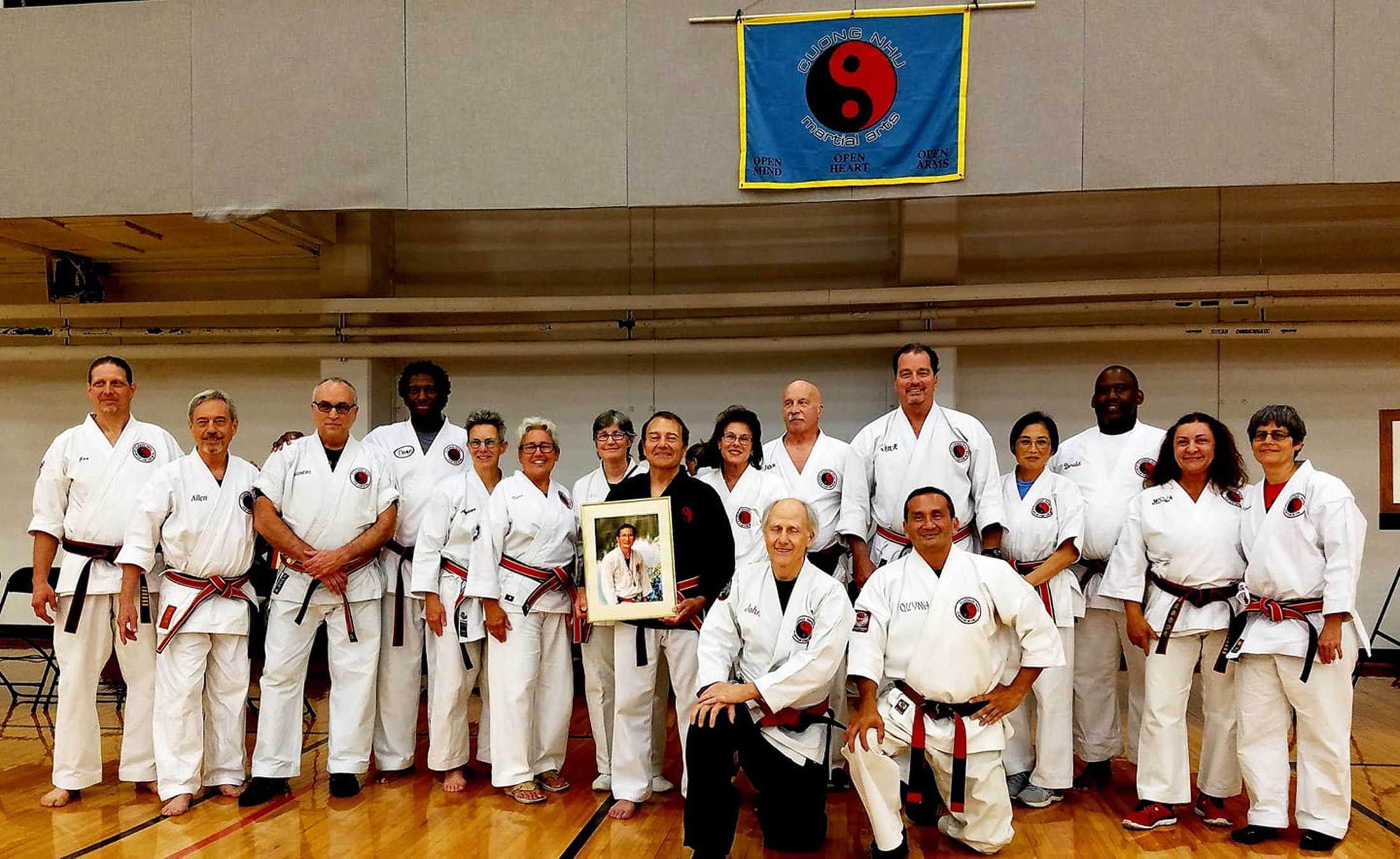About Cuong Nhu

Cuong Nhu is a comprehensive martial art style that blends principles and techniques drawn primarily from seven other styles: Shotokan Karate, Aikido, Judo, Wing Chun, Vovinam, Tai Chi, and Boxing. It is this blending of hard and soft styles from which Cuong Nhu (pronounced Kung New) derives its name, which is Vietnamese for Hard (Cuong) Soft (Nhu).
Cuong Nhu was founded by O'Sensei Ngo Dong in Hue, Vietnam in 1965. In 1971, he traveled to the United States to earn his Ph.D. at the University of Florida, and established the first U.S. Cuong Nhu school on the Gainesville campus. The Cuong Nhu Karate Club quickly grew into the largest intramural club on campus, with over two hundred students participating. This club, now known as Cypress Dojo, continues to thrive to this day. As the style developed, new schools were established to serve people of all ages. From this modest start, Cuong Nhu grew and spread across the United States and the world. Visit our Find a Dojo page to search for a school near you.
Benefits of Training
A beginner in Cuong Nhu will learn primarily "hard style" techniques familiar from traditional karate: powerful stances, blocks, kicks, strikes, and weapons. This training quickly builds strength, stamina, balance, focus, and above all, confidence - a key component of self-defense. As students progress through the ranks, they begin acquiring the more subtle skills of soft style arts, such as off-balancing, redirection, throwing, pinning and more, all while deepening their physical and mental fitness and control.Pursuing rank in Cuong Nhu means gaining the satisfaction of genuine achievement, and developing the mental qualities needed for success in life. Belts are not awarded automatically, but are earned through dedicated practice and continual progress. Individuals may differ in their abilities and strengths, and may vary in the time it takes to progress. But all may strive to be their best through Cuong Nhu's well-designed curriculum, with dedicated practice, and with the help and camaraderie of a community that values self-improvement. Some of these concepts are captured in O'Sensei Dong's "Five P's."
The Five P's of an Achiever: Perspective, Patience, Perseverance, Pride in Accomplishment, Practice till Perfect
Cuong Nhu is based on a well-developed philosophy and a code of ethics. Read more about it here.
The Leadership of Cuong Nhu
The
martial art style of Cuong Nhu is directed by the Head of Style
(Grandmaster), the Masters Council of dan ranks (black belts) who  have
achieved 6th degree and above, and the Heads of Schools committee. Many of these
dedicated Cuong Nhu practitioners have spent a lifetime practicing and
teaching the art. All are devoted to working together to develop the
style, and sharing with the public what they have gained through their
many years of practice.
have
achieved 6th degree and above, and the Heads of Schools committee. Many of these
dedicated Cuong Nhu practitioners have spent a lifetime practicing and
teaching the art. All are devoted to working together to develop the
style, and sharing with the public what they have gained through their
many years of practice.
The Head of Style position was held by O'Sensei Ngo Dong, Cuong Nhu's founder, from 1965 to 1998. O'Sensei's son, Grandmaster Quynh Ngo, served as Head of Style from 1998 until his tragic passing on September 1, 2021. The position is now held by Grandmaster John Burns, who began training in Cuong Nhu in 1974, served as assistant to Grandmaster Quynh, and has run a dojo in Berkeley, California since 1980.
Learn More
Still have questions about Cuong Nhu? Visit our FAQ page.
More information about our Founder, O'Sensei Ngo Dong, and our late Head of Style, Grandmaster Quynh Ngo, can be found on the History and In Memoriam pages.
